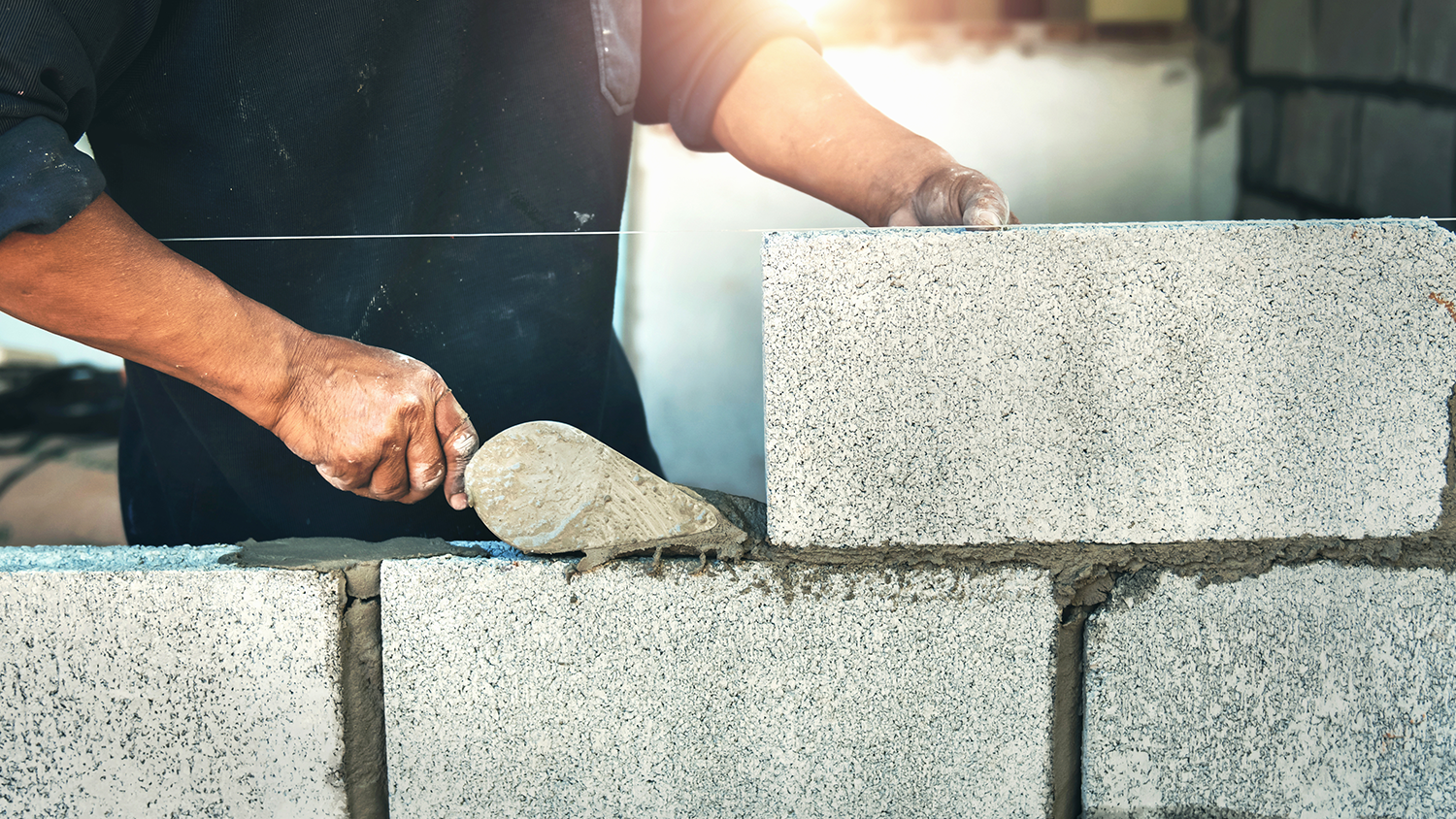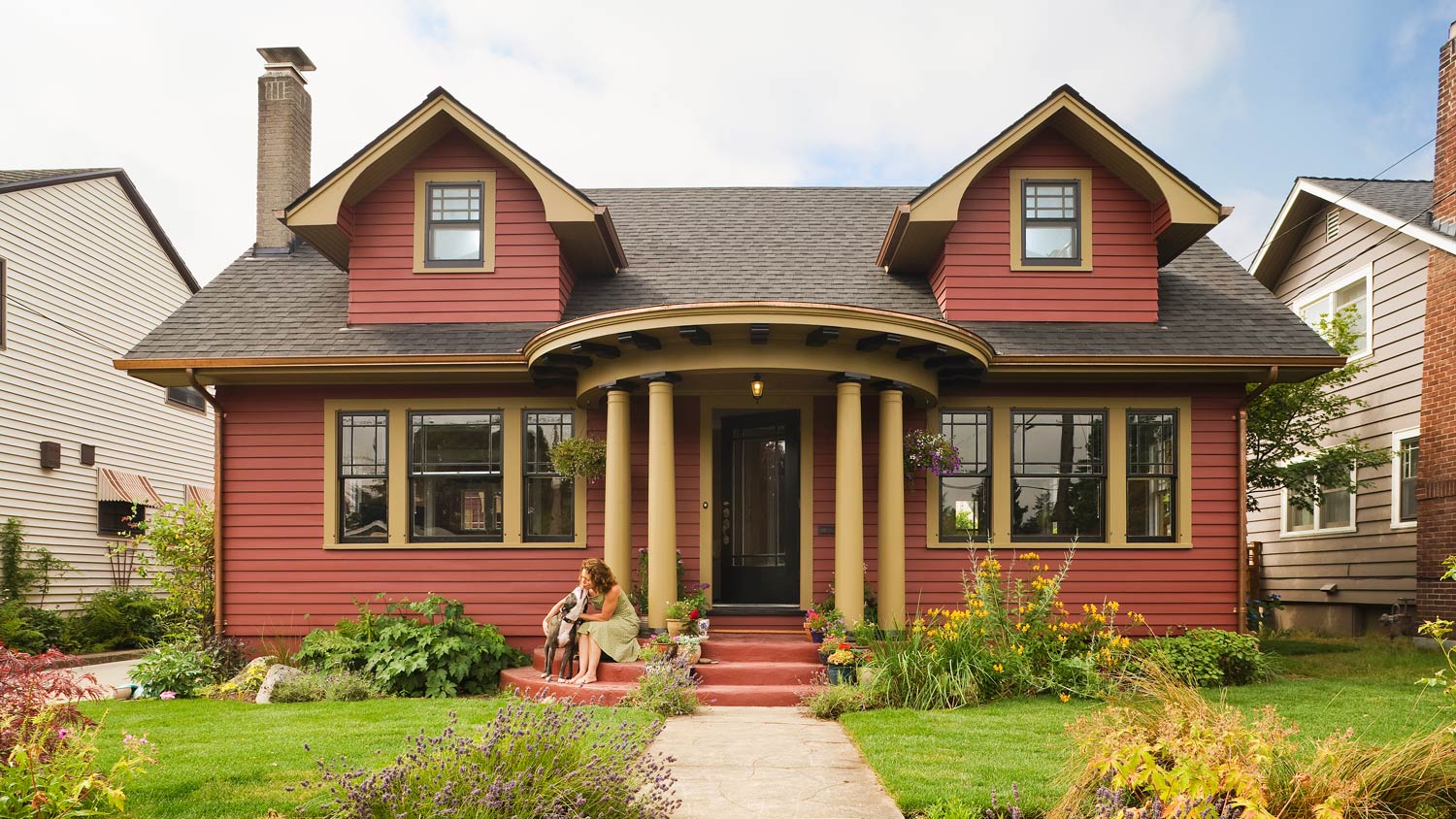14 Questions to Ask Before Hiring a Masonry Contractor
Leave no stone unturned and check your mason’s insurance, certifications, and project plan before signing a contract


If you are planning a new patio, paving a walkway, or constructing a fireplace, a masonry contractor can help you get the job done. Asking the right questions is key to hiring the best masonry contractor. Pave the way for a successful project by gathering more information from prospective masonry contractors about their qualifications, certifications, insurance, and client references.
How to Find a Masonry Contractor
When you’re ready to get started on your brick or stone project, you’ll want to collect at least three to four companies or professionals to follow up with. You can find local pros through an internet search of masonry contractors near you and through referrals from family and friends who’ve had positive project experiences.
Plan Your Masonry Project for Accurate Quotes
Whether your project is a necessary home repair or a new feature you’ve been dreaming of, it will require some pre-planning on your part before the initial conversation so that you can communicate all essential details. To get the most accurate quote and project timeline possible, here are some relevant variables to share with your pro:
Interior vs. exterior
Size or square footage
Type of materials (stone, brick, mortar, or concrete)
Project goals
Questions to Ask Your Masonry Contractor

1. What certifications do you hold?
Ask your masonry contractor to share their certifications. The Mason Contractors Association of America provides certification so that customers have an objective basis for selecting and specifying a quality contractor. This certification also mandates that the contractor meet masonry trade community standards. Your mason may also be required to have a general contractor's license.
2. Do you have a specialty, or are you more of a generalist?
Like the materials they work with, masons vary in niche expertise and style. Some specialize in designing artistic walkways, while others focus on outdoor patios and kitchens. Masons work the following materials:
Brick
Stone
Concrete
Blocks
3. Can I get a written estimate for my project?
Getting a written estimate of all project costs is essential for accurate budgeting and back-up. The estimate answers all your questions about the costs of the project. Other paperwork your contractor should provide includes:
Contract agreement
Construction schedule
Scope of work
Insurance and workman’s comp
Contractor’s license
Payment schedule
4. What happens if there is inclement weather?
Your masonry contractor needs a contingency plan if the weather affects their ability to complete the project. Although ideal temperatures for masonry are broad—between 40°F and 100°F—there are specific temperatures and weather conditions for maximum strength.
5. Will there be a written contract?
A reputable masonry contract provides payment schedules, timetables, and the project's scope—get a signed contract in place before making any payments or beginning work.
6. Can I see proof of your insurance?
A trustworthy masonry contractor will have current insurance and can readily share proof of insurance. Common types of insurance and documentation to verify include liability insurance and workers’ compensation.
7. Who is purchasing the materials for the project?
Your masonry contractor may be able to obtain better pricing for your project materials; however, there are some situations where you might be able to secure the materials yourself at a lower price. Make a clear arrangement with your masonry contractor and put it in your contract. Due to the materials price increase, many contractors have had to increase prices—ask your masonry contractor if the quoted prices are final.
8. Can you provide client references?
It’s relatively simple to find online reviews for your local business or contractor. If your masonry contractor can’t provide client references, consider that a red flag. Take the time to follow up with references.
9. Do I need a permit for my project?
Ascertain if a permit is needed for your specific project and confirm who will be obtaining it.
10. Who will be managing my project?
Don’t assume that the person who met with you will be managing the project. Some companies have salespeople or estimators meet with prospects while other team members manage the project. Get clarity about who will be overseeing the work, and set up a meeting before signing the contract.
11. Who are the subcontractors you will be using?
Your masonry contractor may have to use subcontractors like electricians and plumbers for your job. Ask how long they’ve been working with them, and include details in the contract for how subcontractor invoices will be processed.
12. Can I see a sample of the stone you will be using for my job?
Looking at certain materials like natural stones online or in a brochure is not the same as seeing them in person. Ask your masonry contractor if they can obtain a sample for you or if you can visit a stone yard or store to review the selection.
13. Who is responsible for the clean-up?
Discuss who will be responsible for the daily clean-up of the premises and what that entails. Also, find out what the plan is for the final clean-up of the project. These details should also be included in your written contract.
14. Is there a warranty for your work?
Quality masonry work can last decades or several hundred years when properly maintained; however, brick isn’t indestructible. Settling or shifting foundations and changes in moisture and temperature can damage brick. Ask your contractor if their work comes with a warranty and how long it lasts.





- What is Masonry? Definition, Contractor Credentials, and More
- 12 Valuable Questions to Ask a Contractor
- Top Tips on Hiring the Perfect General Contractor for Your Next Project
- A Crash Course for Hiring a Contractor
- What to Know Before Hiring a General Contractor to Build a House
- 13 Questions to Ask Before Hiring a Contractor
- What Questions Should I Ask Before Hiring a Contractor?
- Home Renovation Contracts: What Should Be Included?
- How to Find the Right Remodeling Contractor
- 10 Key Questions to Ask an Interior Painting Contractor Before Hiring Them











